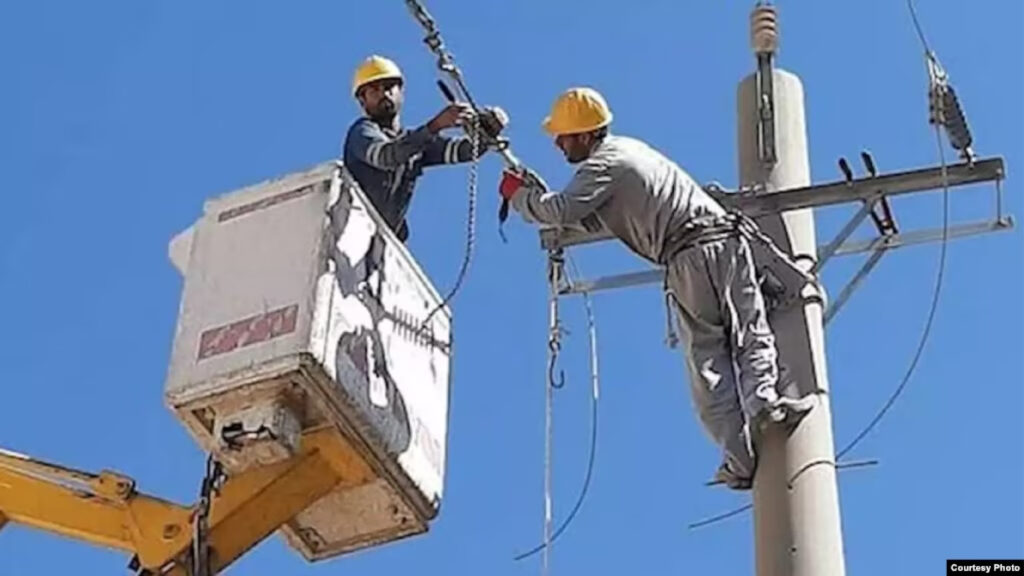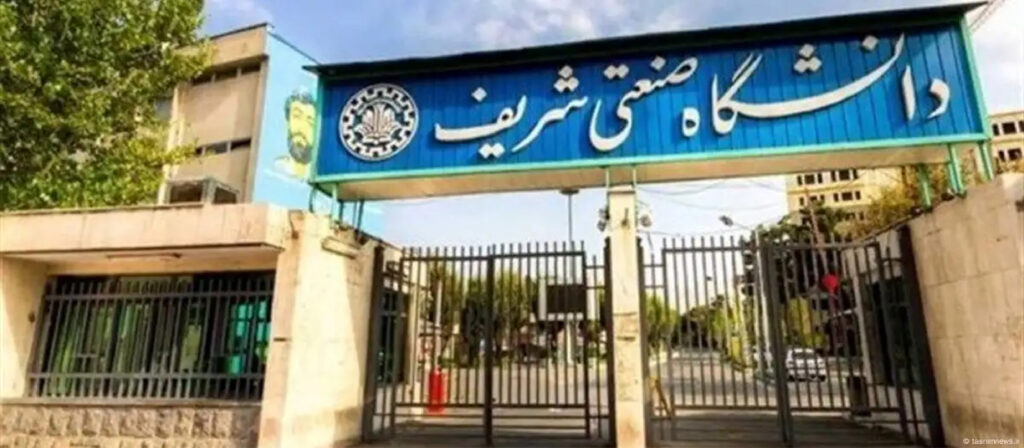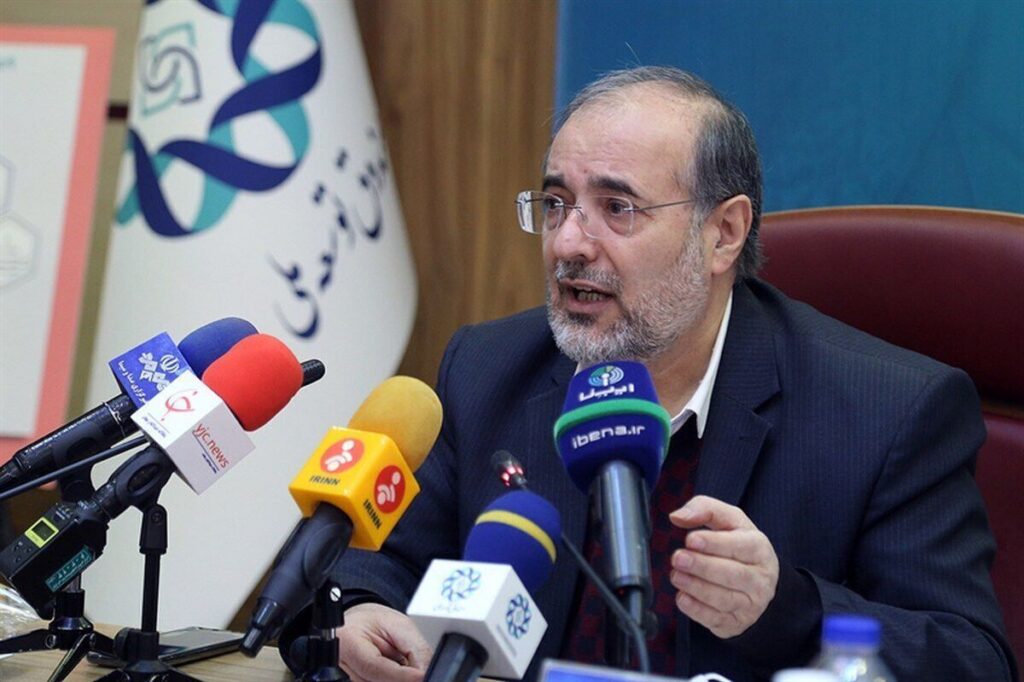
Mr. Pezeshkian, Are You Aware of the Alarming Imbalances?
In an editorial published in Etemad newspaper, Abbas Abdi discussed the inherent feature of modern societies: their continuous and unending confrontation with various imbalances. The editorial noted that these imbalances manifest across all dimensions — environmental, social, cultural, economic, and more. If these imbalances worsen, they can lead to significant societal problems. The editorial explained that this is a fundamental feature of modern societies, as constant change naturally creates imbalances. Unlike inanimate objects that remain unchanged in the short to medium term, or living beings that evolve in a balanced manner due to mechanisms like natural selection, human societies must rely on rational management to navigate these imbalances and prevent societal collapse.
The editorial raised the issue of how most social crises in history result from the exacerbation of such imbalances, leading to crises and conflicts to establish a new balance. For example, it mentioned the crisis of capitalism, which Karl Marx believed could only be resolved through a transition to socialism and communism. However, the editorial added that the capitalist system managed to neutralize these crises through its methods.
Furthermore, the editorial highlighted that efforts should focus on repairing and moderating severe and dysfunctional imbalances that disrupt societal processes. It noted that whenever an imbalance reaches a dangerous, dysfunctional and destabilizing level, alarm bells ring, prompting political sensitivity and action to address these issues.
Abdi pointed out that imbalances have affected all aspects of Iranian society, reaching a dangerous level in areas such as energy, water, the environment, the budget, employment, currency, income and expenses, the banking system, pension funds, economic inequalities, regional development, and the relationship between the government and the people.
The editorial noted that many of these imbalances have no simple or individual solutions, and solving them requires a comprehensive approach involving all governing bodies and the public. Most of these imbalances have reached a critical state, particularly in essential sectors such as water, electricity, and energy.
The editorial also discussed the structural divides within the government as a significant root cause of these imbalances. It cited the example of how certain factions opposed joining the Financial Action Task Force (FATF) only because it was pursued by the Rouhani government, while they might have supported it had it been initiated by their own faction. The editorial added that the divide between the government and the public has further exacerbated these imbalances, as governments are often hesitant to take costly action due to a lack of public trust and fear of backlash, especially in light of the events of 2009.
Abdi argued that even the Raisi government, despite being relatively unified, did not dare take significant steps to address these imbalances. A failed attempt, such as the removal of the 4,200-toman exchange rate, was neither scientific nor comprehensive and ultimately failed. The editorial concluded that no effective policies could address existing imbalances without bridging internal power gaps and improving relations between the government and the public. Addressing economic imbalances necessitates resolving political, social, and media-related imbalances.
Yet, the editorial expressed hope that, following the recent elections and cabinet approval, and with a policy of political consensus, both divides might be reduced, paving the way for decreasing imbalances, particularly between the government and the people. It urged the government, with full support from the Parliament, to commit to correcting these imbalances scientifically and logically. It called for gaining public trust to support policies that address destructive imbalances, starting with areas that incur no costs, such as addressing human resource, media, internet, and women’s rights imbalances.
A US Consulate in Iran: Yes or No?
In an editorial for Setar-e Sobh, Secretary-General of the Islamic Parliamentarians Society Yadollah Eslami addressed the topic of reopening the US consulate in Tehran. Eslami noted that discussions about the consulate often draw attention. He argued that the severed political relations between Iran and the United States, with all their consequences, have not led either side to reconsider their approach. Despite years of tensions, both countries have not managed to shift away from their antagonistic stance to establish diplomatic relations based on national interests.
The editorial discussed the issue of the consulate specifically, highlighting that the closure of the consulate alongside the embassy has caused numerous problems for Iranians, which have been inadequately addressed. In Washington, the Interests Section of the Islamic Republic of Iran operates within the Pakistani embassy, handling consular matters. However, Iranians need to travel to US consulates and embassies in Turkey, the UAE, Armenia and other countries for consular services, such as obtaining tourist visas and student travel documents. Given the large Iranian population in the United States, many individuals face significant costs and difficulties when visiting relatives or securing visas. This includes not only the cost of travel but also expenses related to appointments, tickets, accommodation, and other expenses that burden the public.
Eslami emphasized that, separate from the broader issue of political relations, there should be consideration of practical solutions to address the difficulties faced by ordinary people. He referred to the statement of the CEO of the National Development Fund, who suggested that the time had come to reopen the embassy or at least establish an office to handle consular services. This, Eslami argued, is a demand for those intending to travel to the United States.
The editorial noted that from a fundamental rights perspective, two countries can be in a state of tension, conflict, or even war while still maintaining a consulate. A consulate provides services and is not a political entity, thus having no direct connection to the political disputes between Iran and the United States. He concluded by urging the establishment of a consulate to address the needs of the people and alleviate their concerns.
Social Impacts of Disproportionate Salaries
In an editorial for Arman Daily, Seyed Mohi al-Din Hosseini Arasanjani addressed the issue of significant discrepancies in salaries among employees and managers, emphasizing that this is not just a single question but involves a multitude of concerns. Recently, the President of the Supreme Audit Court of Iran Seyed Ahmadreza Dastghib took a bold step by exposing a list of thousands of managers and administrative personnel across various government agencies who receive extraordinarily high and unconventional salaries, often referred to as “astronomical salaries.”
Arasanjani questioned how it is possible that 10,174 individuals across 12 government agencies are still receiving astronomical salaries in the 2024 budget, and how such a significant issue has gone unnoticed by the relevant authorities and oversight organizations. He highlighted the severe erosion of public trust, widespread disillusionment among citizens, and the demoralization of intellectuals, youth, workers and teachers as some of the direct consequences of these excessive salaries. He also noted that the prevalence of corruption, bribery and embezzlement among managers and officials contributes to this problem.
The editorial discussed how excessive salaries contribute to various systemic issues, including increased poverty, inefficiencies within the administrative system, disruptions in financial networks, the proliferation of fraudulent jobs, and the brain drain of skilled professionals. These issues lead to a decline in national values, civil disobedience and social harm, as well as an increase in mental health issues such as depression, frustration, and addiction. Arasanjani argued that the government’s response to this form of corruption has been inadequate, and unless a decisive decree is issued to eliminate the practice of paying astronomical salaries, the problem will persist.
Nurses’ Protests
In an editorial for Eghtesad Pooya, Hamid Suri addressed the growing protests among nurses in Iran and the inadequate response from the Ministry of Health. Suri notes that the ministry, typically responsible for addressing nurses’ concerns, has not seriously engaged with the issue. This has led to increased involvement from police forces and local governors. The central demand of the protesting nurses is fair compensation, and Suri expresses hope that the minister of health has a plan to address this need. He highlights that the longstanding issue of disproportionate pay within the Ministry of Health has not been adequately addressed. If not resolved promptly, Suri warns that what began as a minor protest could escalate into a major issue, exacerbated by the ministry’s prolonged transition period.
The editorial shed light on the factors influencing salary differences between nurses and doctors in various countries. These factors include the country’s economic and health status, government health policies, the demand for nursing and medical services, the number of professionals in these fields, and the overall healthcare system structure. In more developed countries with advanced healthcare systems, the editorial argued, the disparity between nurse and doctor salaries tends to be smaller. Such countries often have robust support systems for healthcare workers, which include higher salaries, better benefits, and opportunities for professional development.
The editorial also provided examples from other countries to illustrate these differences. In Germany, for instance, nurses with less than two years of experience earn between 2,000 and 2,500 euros per month. Those with five to 10 years of experience make between 3,000 and 3,500 euros, and experienced nurses with over 10 years earn more than 4,000 euros monthly. Specialist doctors in Germany earn between 3,500 and 15,000 euros per month, depending on their experience, expertise, and performance. In Turkey, a clinical specialist earns about 95,000 liras on average, while a nurse earns around 30,000 liras.

The Head of the Electrical Syndicate Says That in the Next Decade, Iran’s Electricity Shortfall Will Reach 37%

The Head of the Iranian Electrical Syndicate Hassan Ali Taghizadeh has warned that by 1414 (2035), the country will face a significant electricity supply shortfall, reaching 37% of the total demand. Taghizadeh described this anticipated imbalance as “dangerous” and emphasized that the current deficit is already severe. This summer, Iran experienced a 17,000-megawatt shortfall, up from 12,000 megawatts last year. Consequently, while last year’s shortfall represented 16% of demand, it has increased to 22% this year and is projected to worsen significantly over the next decade.
Iran’s electricity demand grows annually by 7%, driven by an increase of about 1 million new consumers and the sale of approximately 700,000 air conditioners each year. The country had aimed for a 7% annual increase in power production over the past decade to match domestic consumption growth but only achieved half of this goal. Last year, only a third of the production increase target was met, and since summer 1402 (2023), the Ministry of Energy has restricted public access to its data, obscuring the current state of electricity production, consumption, and trade.
Taghizadeh attributed part of the electricity imbalance to aging infrastructure, with about 20% of substations over 30 years old and 15.3% over 35 years old. This outdated equipment often fails under increasing demand. Additionally, some power plants, older than 40 years, are taken offline for emergency repairs during peak times, exacerbating supply issues. Transmission lines also suffer from age-related problems, with 29% over 20 years old and 21.4% over 35 years. Official figures indicate that 13% of electricity is lost due to inefficiencies in the aging network, equating to 40% of the country’s residential electricity use. The financial impact of the electricity imbalance last year was an estimated 100 trillion tomans, expected to rise to 150 trillion tomans this year, roughly equivalent to the cost of constructing a 5,000-megawatt power plant.
The Islamic Association of Sharif University Has Called for the Reinstatement of Dismissed Professors

On August 26, 2024, the Islamic Association of Sharif University students issued a formal letter to the Minister of Science, Research and Technology Hossein Simayi Sarraf, urging the reinstatement of Professor Ali Sharifi Zarchi to the Computer Science Department. The letter criticized the university’s decision to terminate Zarchi’s academic affiliation, attributing it to a broader, problematic trend of “purifying” universities, which the association claims is part of a series of unjust decisions leading to the dismissal of numerous university professors across the country.
The association emphasized that this recent action is part of a troubling pattern observed in recent years, aimed at “unjustly dismissing university professors” and increasing disappointment and frustration among academic communities. They argued that the ongoing exclusion of experienced faculty members is resulting in a significant loss of expertise and weakening universities’ role in addressing national challenges.
The letter also highlighted that academic freedom and university authority have been undermined, leading to a lack of effective solutions for the country’s issues. The trend of removing critical voices from academia, which began during the second term of President Mahmoud Ahmadinejad, has continued and intensified, particularly after the nationwide protests sparked by the death of Mahsa Amini. This pattern has included forced retirements, dismissals of adjunct professors, and other restrictions on academic and student activities.
Reports indicate that approximately 60 professors from universities across Iran have been removed, suspended or forced to resign in the past two years, with the highest numbers from Tehran University and Tehran University of Medical Sciences. Concerns persist that these actions are paving the way for individuals loyal to the government to gain control over Iranian universities.
7% Decrease in Demand for Food; Livelihoods in a Critical Condition

The Parliamentary Research Center has reported a worsening crisis in effective demand within the economy, highlighting a notable decline in food and beverage sales. According to their data, the sales index for the food and beverage industry decreased by 7.3% in July compared to the same month last year and 7.6% from the previous month. This decline underscores the severe impact of rising prices on people’s livelihoods and the shrinking and restricting of their food baskets.
The report, featured in the newspaper Donyaye Eghtesad under the title “Industry in Red Status,” indicates that the production index across most subsectors, except for the oil industry, has decreased. The overall production and sales indices for the food and beverage sectors have also fallen compared to the previous year. The report warns that the continuation of this trend could lead to more businesses operating at half their production capacity, eventually facing potential closures.
Analysts suggest that the drop in production and sales across all industries points to a critical situation in the manufacturing sector, pushing the economy towards the brink. The significant decrease in demand for food indicates that people’s diets are becoming more limited.
This issue is highlighted further by recent comments from Mohammad Ismail Motlagh, head of the Supreme Council for Health and Food Security, who noted that eight provinces are in urgent need of attention regarding nutrition. Critics interpreted this as an unofficial acknowledgment of malnutrition in these economically disadvantaged regions.
The reduction in food demand exacerbates the broader crisis in livelihoods, increasing the number of people facing malnutrition. Ettela’at newspaper has also raised concerns about the public’s economic situation, describing it as a critical crisis in general living conditions. The combination of diminished purchasing power and rising production costs contributes to the declining demand for food and beverages.
CEO of National Development Fund Proposes Reopening US Embassy and Reinstating Consular Relations

National Development Fund CEO Maziar Ghazanfari has proposed reopening the US embassy in Tehran and reinstating consular relations. In a letter to President Pezeshkian, Ghazanfari urged him to address longstanding diplomatic issues, suggesting that these actions be taken before the current period of favorable conditions ends.
Ghazanfari recalled the historic event when students, allegedly influenced by the Tudeh Party, seized the US embassy in 1979, creating a diplomatic stalemate that persists today. While acknowledging that espionage and intelligence gathering by embassies are standard practices, he implied that previous administrations may have lacked the experience needed to manage such situations effectively.
He emphasized that reopening consular services at the US embassy would be a significant gesture of respect for the Iranian people. This move would ease travel and provide necessary consular support for many Iranians living in the United States or in need of consular assistance. Ghazanfari’s proposal reflects a desire to address and resolve lingering diplomatic challenges and improve bilateral relations.
